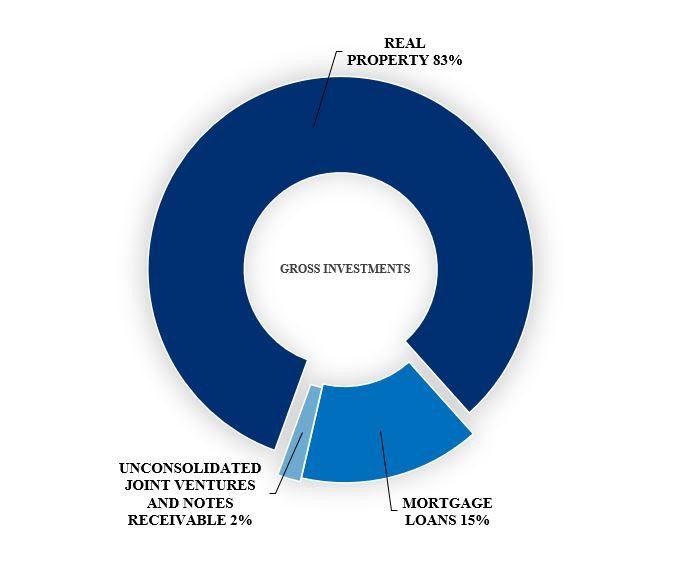Health Care Regulatory Climate
The Centers for Medicare & Medicaid Services (“CMS”) annually updates Medicare skilled nursing facility (“SNF”) prospective payment system rates and other policies. On July 30, 2019, CMS issued its final fiscal year 2020 Medicare skilled nursing facility update. Under the final rule, CMS projected aggregate payments to SNFs would increase by $851 million, or 2.4%, for fiscal year 2020 compared with fiscal year 2019. The final rule also addressed implementation of the new Patient-Driven Payment Model case mix classification system that became effective on October 1, 2019, changes to the group therapy definition in the skilled nursing facility setting, and various SNF Value-Based Purchasing and quality reporting program policies. On April 10, 2020, CMS issued a proposed rule to update SNF rates and policies for fiscal year 2021, which started October 1, 2020, and issued the final rule on July 31, 2020. CMS estimated that payments to SNFs would increase by $750 million, or 2.2%, for fiscal year 2021 compared to fiscal year 2020. CMS also adopted revised geographic delineations to identify a provider’s status as an urban or rural facility and to calculate the wage index, applying a 5% cap on any decreases in a provider’s wage index from fiscal year 2020 to fiscal year 2021. Finally, CMS also finalized updates to the SNF value-based purchasing program to reflect previously finalized policies, updated the 30-day phase one review and correction deadline for the baseline period quality measure quarterly report, and announced performance periods and performance standards for the fiscal year 2023 program year. On April 8, 2021, CMS issued a proposed rule to update SNF rates and policies for fiscal year 2022, which starts October 1, 2021. CMS estimates that under the proposed rule, overall payments to SNFs under the SNF prospective payment system in fiscal year 2022 are projected to increase by approximately $444 million, or 1.3%, compared with those in fiscal year 2021. The proposed rule also includes proposals for the SNF Quality Reporting Program, and the SNF Value-Based Program for fiscal year 2022.
Since the announcement of the COVID-19 pandemic and beginning as of March 13, 2020, CMS has issued numerous temporary regulatory waivers and new rules to assist health care providers, including SNFs, respond to the COVID-19 pandemic. These include waiving the SNF 3-day qualifying inpatient hospital stay requirement, flexibility in calculating a new Medicare benefit period, waiving timing for completing functional assessments, waiving requirements for health care professional licensure, survey and certification, provider enrollment, and reimbursement for services performed by telehealth, among many others. CMS also announced a temporary expansion of its Accelerated and Advance Payment Program to allow SNFs and certain other Medicare providers to request accelerated or advance payments in an amount up to 100% of the Medicare Part A payments they received from October–December 2019; this expansion was suspended April 26, 2020 in light of other CARES Act funding relief. The Continuing Appropriations Acts, 2021 and Other Extensions Act, enacted on October 1, 2020, amended the repayment terms for all providers and suppliers that requested and received accelerated and advance payments during the COVID-19 public health emergency. Specifically, Congress gave providers and suppliers that received Medicare accelerated and advance payment(s) one year from when the first loan payment was made to begin making repayments. In addition, CMS has also enhanced requirements for nursing facilities to report COVID-19 infections to local, state and federal authorities. On July 19, 2021, HHS Secretary Becerra announced that he had renewed, effective July 20, 2021, the declared public health emergency for an additional 90-day period.
On March 26, 2020, President Trump signed into law the Coronavirus Aid, Relief, and Economic Security Act (the “CARES Act”), sweeping legislation intended to bolster the nation’s response to the COVID-19 pandemic. In addition to offering economic relief to individuals and impacted businesses, the law expands coverage of COVID-19 testing and preventative services, addresses health care workforce needs, eases restrictions on telehealth services during the crisis, and increases Medicare regulatory flexibility, among many other provisions. Notably, the CARES Act temporarily suspended the 2% across-the-board “sequestration” reduction during the period May 1, 2020 through December 31, 2020, and
